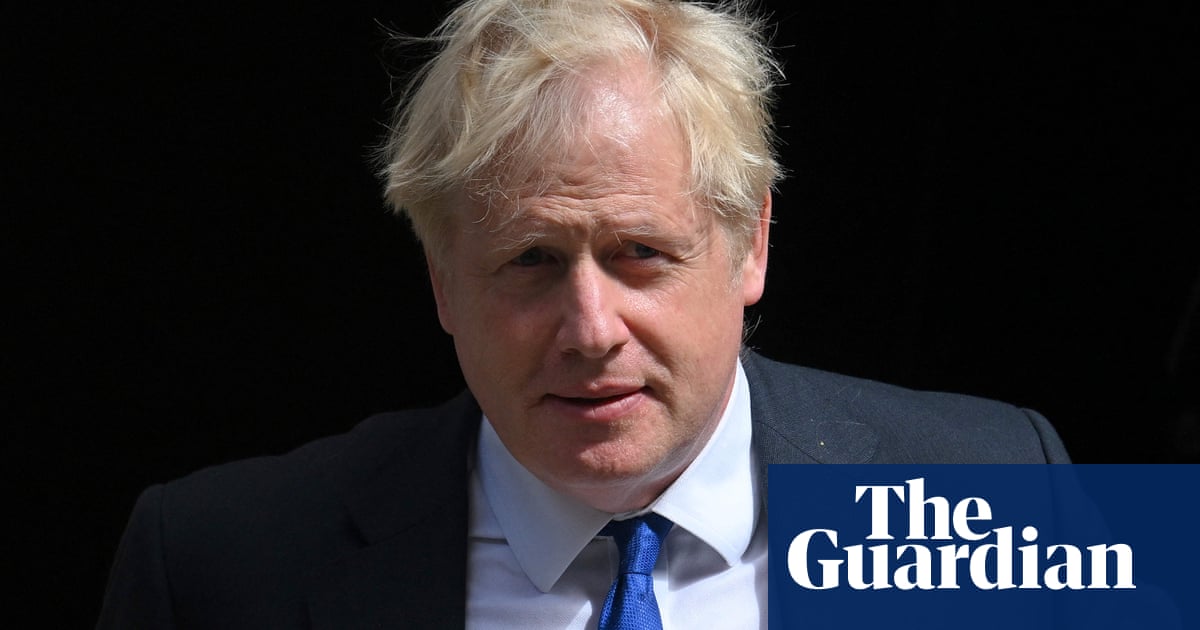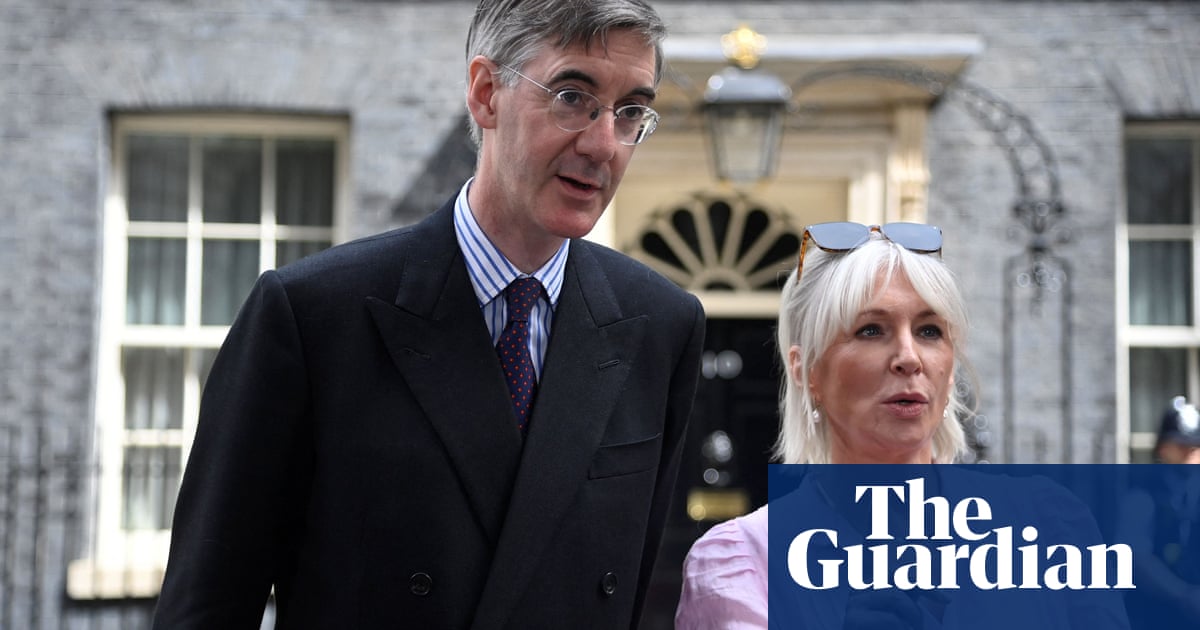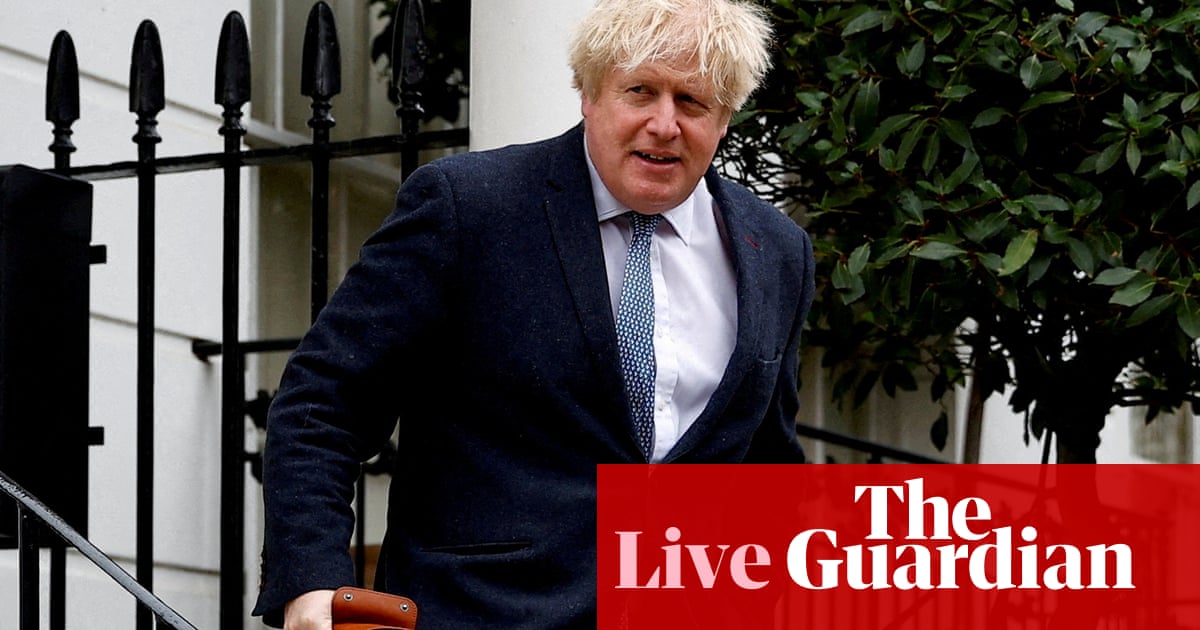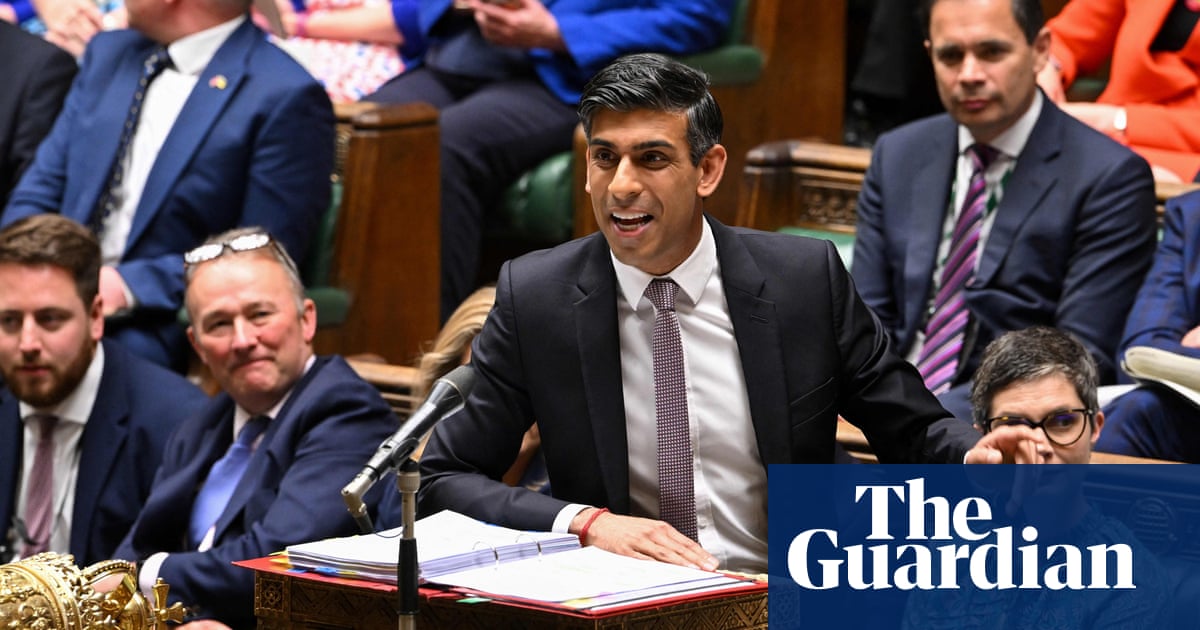
Boris Johnson called off his parliamentary supporters threatening to vote against the finding that he misled parliament, as he appeared to run out of road in his battle over the Partygate scandal.
The former prime minister asked his allies not to oppose a motion in the House of Commons on Monday endorsing the findings of the privileges committee, which found he deliberately misled parliament and was part of a campaign to intimidate MPs investigating him.
Johnson has lashed out at the committee as a “kangaroo court” and strongly rejected its findings. But he told his small band of allies in parliament that there was no point in voting against the report, because it would have no practical consequences.
The former prime minister is said to be focusing now on his life outside parliament, with a new column for the Daily Mail detailing his decision to take a weight loss drug while he was a cabinet minister in an effort to counteract “40 years of moral failure, 40 years of weakness in the face of temptation”.
However, he was soon caught in a new controversy over his failure to seek prior approval for the role from the watchdog on post-government appointments. The Advisory Committee on Business Appointments said Johnson committed a “clear breach” of rules on former ministers taking up new jobs by telling an appointments body only half an hour before the public announcement.
Instead of using his new column to attack his rival, Rishi Sunak, Johnson detailed his decision to take Ozempic, a weight loss drug, while a cabinet minister. He said it helped him initially before making him sick, and then made the case that it may “not be enough” to rely on people’s willpower to tackle the obesity crisis, saying there was nothing morally wrong with using weight loss drugs.
Johnson has released furious statements about the findings of the privileges committee and last week attacked Sunak’s failings in No 10, so his decision to use his new platform for a less political subject is likely to be a relief to Downing Street.
The debate over the privileges committee report is now likely to be a heated but largely symbolic. If no MPs oppose the motion, then it may go through without a vote, meaning his supporters in parliament will not be counted. Some Conservative MPs had been expected to back the motion on the report, with others planning to be strategically absent and a handful saying they would try to vote it down.
The report, which was published on Thursday, found Johnson lied to the Commons when he told MPs he believed he had not broken lockdown rules by attending parties in Downing Street during the pandemic.
The committee said that had Johnson still been an MP, it would have recommended he be given a 90-day suspension. Johnson stood down before the report was published however, leaving members instead to vote on the recommendation that he not be granted a former member’s pass.
The Tory former cabinet minister Damian Green said on Friday morning that he intended to vote for the report, calling it “very clearcut”.
“I think it’s important that parliament respects its own systems,” he told BBC Radio 4’s Today programme. “We set up this committee asking them to do this very serious report. They’ve come up with what is clearly a very damning set of conclusions. If parliament runs away from that then it calls into question whether we should carry on having this kind of self-regulation.”
Johnson’s allies concede that they expect parliament to approve the report, with opposition parties united in favour of it and mass abstentions expected on the Tory benches.
But several of those closest to the former prime minister had been promising to target any Conservative MP who does turn up to vote in favour.
One Johnson backer told the Guardian on Thursday: “They just don’t realise the extent of anger they have created, and that will be manifested.” Nadine Dorries, who has promised to resign from her Mid Bedfordshire seat in protest at not being given a peerage but has not yet done so, has warned that “deselections will follow” for Tory MPs who vote for the report.
Downing Street has still not said whether Rishi Sunak will attend Monday’s vote, with the government declining to put pressure on MPs. The Telegraph reported on Friday the prime minister planned to meet an unnamed foreign leader on that day, which might render him unable to vote.
Penny Mordaunt, the Commons leader, made it clear on Thursday the government would not put pressure on Tory MPs to vote one way or the other on Monday. She told the Commons she wanted MPs to “read the report … make their own judgments about it, and take the task that is our privilege to do seriously and soberly”.
On Friday night, a report in the Times suggested that 25 notebooks from Johnson’s time in office were being withheld from him by the government after a review by the security services found pages of highly sensitive material.
A source close to Johnson told the paper there was “no national security-sensitive material” in the notebooks, describing them as “daily jottings from unclassified meetings”.












